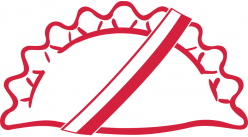Meaning:
Lit. “a donor”. The word itself is most of the time used in expressions related to medicine: “dawca krwi” or “krwiodawca” means a blood donor and “dawca szpiku kostnego” – a bone marrow donor.
So much for the official Polish. But in drivers’ slang this term is only used for motorcyclists, whose sole reason to live is to overtake everyone else on the road, and set new records of accelerating and braking between tight turns. You can find the origin of it in what happens after an unlucky biker hits a car head-on.
